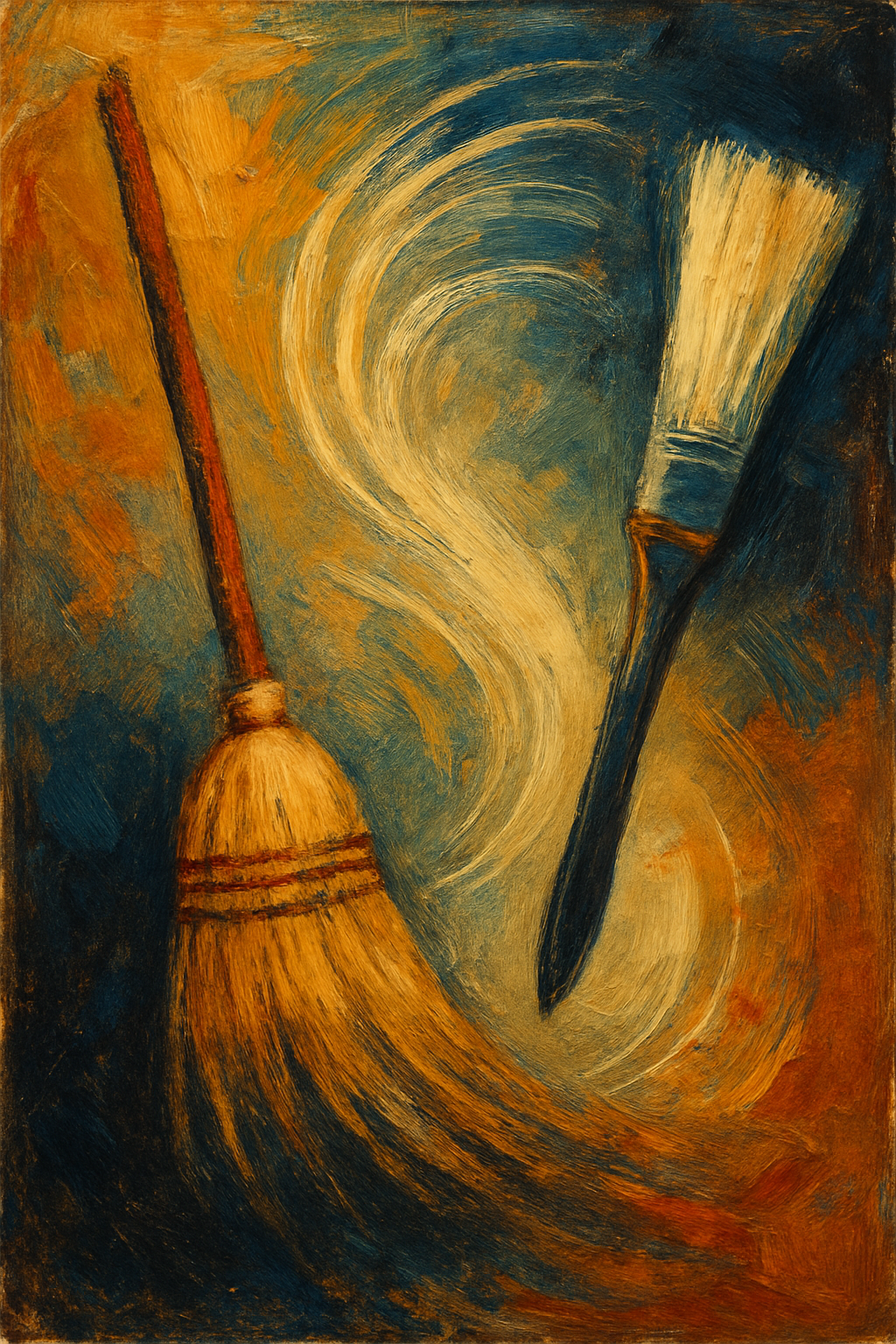The Broom and the Brush

A museum hall in Paris, midnight. Tall windows pour cold light across marble. An unfinished canvas looms.
The Painter, gaunt, restless, sits, then paces.
The Cleaning Lady, stooped but wiry, sweeps the long hall.
Painter:
Each canvas is a mouth I cannot feed,
A hollow hunger, an unblinking need.
Cleaning Lady:
Even mud turns fertile when storms have passed;
Broken ground still cradles a root at last.
Painter:
I throw my colors, they clot, they sour;
My brush makes wounds with no healing power.
Cleaning Lady:
Mud feeds roots that push toward light;
At dawn, one stroke can split the stone of night.
Painter (pacing):
Once they called me prodigy, loud and clear;
Now I paint for ghosts who will not appear.
Cleaning Lady:
Even a stone sinks home to the earth.
Even a broom wears thin, my dear.
Painter (kicks jar):
The colors bruise before they dry;
Each stroke stares back, a mirror’s eye.
Cleaning Lady (touches broom to canvas frame):
Night claws hardest before it breaks;
I swept at dawn for children who never came,
and still the morning rose, its dust the same.
Painter (falters):
My hand is lead, my chest is clay.
Cleaning Lady:
Still one thread weaves the cloth each day.
Painter:
My breath turns bitter, each hour decays.
Cleaning Lady:
I buried sons, still I sweep what remains.
Painter (half-laugh):
If grief were paint, I’d drown this hall.
Cleaning Lady (grinning):
Then thin it, boy, or drown in it all.
Painter:
Each mark I make feels vain, absurd.
Cleaning Lady:
Then paint that vanity, make it heard.
Painter (quiet, brush trembling):
If I lift this brush… will the canvas forgive?
Cleaning Lady (half-smile):
Waste nothing, boy. Let paint outlive.
The brush whispers across canvas. The broom rasps over marble. Sweep and stroke weave counterpoint. Dust lifts, shimmering, as if the moon itself were ground to powder. The dust settles shining, as if night were done,
and the hall waits quietly, calling the sun.

Discussion